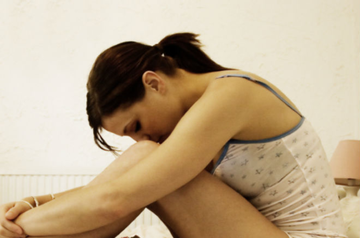What To Expect After A Miscarriage | Physical Changes In The Body
What to Expect after a Miscarriage| Physical changes in the Body
The pleasure of discovering that you are pregnant is instantly turned upside down when a miscarriage occurs. Although you never got to see your baby, you had still developed a bond with your baby bump and started imagining the future. It can be pretty challenging, both emotionally and physically to deal with a miscarriage. However, it is important to learn the physical changes that will take place in your body after a miscarriage, so that you can ensure proper care.
You might also like: 7 Things To Do When You’re Trying To Conceive
Here are few important ones:
Breast changes
Since the level of hormones progesterone and estrogen is high during pregnancy, it will gradually reduce to pre-pregnancy level after your miscarriage. This process might take around four to six weeks. Until, then you might find your breasts turn tender and heavy, which is actually a sign of your periods arriving. If you had a miscarriage in the later stages of your pregnancy, you might also experience breast leakage as your body was fully prepared for breastfeeding.
What To Do-
- Wear a padded bra to prevent the leakage from staining your clothes.
- Continue wearing maternity bras that ensure proper support.
- If your breasts are too painful, avoid wearing a bra at night.
- Exercise caution while changing clothes.
- Consult your doctor for necessary medications and steps to be taken if the pain is unbearable.
Blood Loss
Immediately after your miscarriage, you will experience a lot of blood loss as your body will release the tissue and placenta. Excess blood in the body will also be released. However, it is essential to note that excessive blood flow can be harmful. You must seek medical intervention in such a case.
What To Do-
- Use pads regularly and keep them handy as you might have to change them often.
- Ensure a proper diet so as to compensate for excessive blood loss.
- Consult your doctor about the normal amount of blood loss after a miscarriage.
Also read: Eight Essential Fruits to have During Pregnancy
Infection
Infection related to miscarriage is a rare condition and affects around 3 percent of the women. It might be triggered if your conception by-products are retained in your body and are taking time to leave. This is known as incomplete miscarriage and can be pretty harmful if not treated. Symptoms of uterine infection post-miscarriage are- fever over 100 degrees, excessive cramping & bleeding, awful smelling vaginal discharge, and shivering.
What To Do-
- Contact your doctor immediately if you notice any of the above-mentioned symptoms.
- Get an ultrasound scan done to check whether the placenta has been completely removed from the stomach or not.
- Steer clear of douching, sexual intercourse & hot water baths to prevent infection after miscarriage.
- Use sanitary pads instead of tampons.
- Take medications as prescribed.
Abdominal Pain & Cramps
Miscarriage is clearly not a pleasant situation with a number of physical and emotional changes. A majority of women experience abdominal pain and cramping after their miscarriage as the body struggles to adjust to pre-pregnancy condition. The pain is not same for all the women and is highly affected by how later the miscarriage occurred.
What To Do-
- Abdominal pain following a miscarriage shouldn’t generally last for two months. In such a case, you must seek medical help.
- Ensure proper rest and take your medications as prescribed.
- Avoid lifting heavy objects.
Anemia
A miscarriage might at times be accompanied by anemia, which is a deficiency of iron caused due to low hemoglobin level in the body. This often happens due to excessive blood loss. Symptoms of anemia are tiredness, excessive fatigue, irritability and mood swings.
What To Do-
- Consume iron supplements after consulting your doctor or midwife.
- Make some dietary changes and stock up on iron-rich foods such as spinach, beans, dry fruits, peas, sea foods, and iron-fortified cereals and bread.
Read More: Abdominal Pains during Pregnancy - What You Need To Know
Quick Takeaway
Nothing can be done to undo a miscarriage. The treatment following a miscarriage is aimed at preventing infection, excessive bleeding, and prolonged abdominal pain. It also aims at looking after the woman’s emotional well-being. Consult your doctor regarding the cause of your miscarriage and necessary precautionary steps to be taken.
Want to share your mommy experience with other moms through words or images? Become a part of the Moms United community. Click here and we will get in touch with you.
This post was originally published on Indian Moms Community.
















